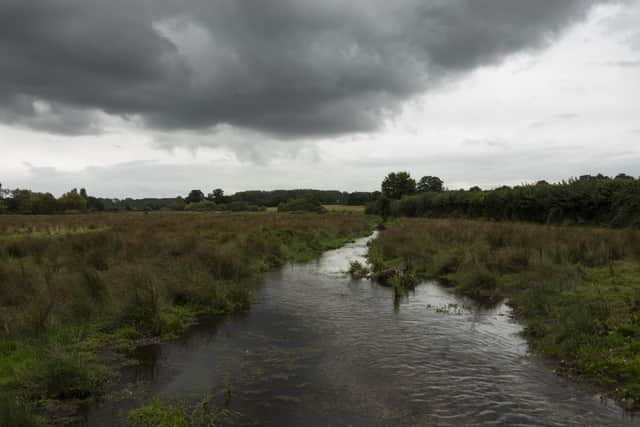Will England allow its iconic and rare chalk stream habitats to be trashed by pollution? – Philip Lymbery
This article contains affiliate links. We may earn a small commission on items purchased through this article, but that does not affect our editorial judgement.
Some of the best things in nature are understated – take the chalk streams of England, for example. These fragile river systems meander quietly through undulating countryside before disappearing into the sea. Beloved by fishermen down the ages, chalk streams are fascinating river systems where everything grows in abundance.
Fed by babbling springs and typically crystal-clear, they have their own ecosystem, so unique and biologically productive that experts refer to them as waterborne ‘rainforests’. England is home to 85 per cent of the world’s chalk streams, which provide vital homes for wildlife like the mayfly, brown trout and the water vole.
Advertisement
Hide AdAdvertisement
Hide AdDescribed by David Attenborough as “one of the rarest habitats on Earth” in his recent BBC series, Wild Isles, chalk streams are under serious threat. Charles Rangeley-Wilson, appointed by the UK Environment Agency to help deliver on a 2021 government strategy to save chalk streams, said we are “miles from where we need to be".
It’s not just wildlife that rely on them – chalk streams are a primary source of freshwater for household consumption. More than two-thirds of the water supply for the southeast of England comes from the chalk aquifer, with an average family of four using the water equivalent of 60 metres of river each year. However, these beautiful streams are showing signs of strain from increasing demand for water abstraction.
At the same time, nitrate and phosphate running off from sewage works and farm fields cause river pollution. This can cause algal blooms to proliferate, smothering flowering plants, coating the riverbed an unsightly green, and sucking out oxygen, causing the death of aquatic life. Intensively farmed arable land is a major source of pollution.
England’s chalk streams have more arable land in their catchment areas – nearly half of the surrounding area – than any other type of river. Maize (corn) crops are particularly blamed for polluting rivers. Since the 1970s, there has been a heavy shift towards growing maize in Britain, with much of it grown for intensive animal feed and the biofuel business.
As well as pollution, soil erosion from intensively farmed fields can silt up delicate riverbeds. This robs fish and other species of vital breeding habitat. The end result: impoverished streams with little life.


It’s good to see then the growing public outcry to protect our chalk streams, a leading proponent of which being Feargal Sharkey, the singer of a band I’ve long admired, the Undertones, who is now a passionate campaigner for rivers. On Twitter alone, his call to action now has a following of nearly 200,000.
Like the Scottish uplands, England’s chalk streams have become an iconic destination for many countryside lovers. If generations to come are to enjoy the chatter of gin-clear water, safe in the knowledge that it harbours thriving wildlife, then concerted action is needed now before it’s too late. So, hurrah for the likes of Sharkey. Loud may their voices be.
Philip Lymbery is chief executive of Compassion in World Farming, a former United Nations Food Systems Champion and award-winning author of Farmageddon: The True Cost of Cheap Meat and Dead Zone: Where the Wild Things Were. The third book in the trilogy, Sixty Harvests Left: How to Reach a Nature-Friendly Future was published last year. Philip is on Twitter @philip_ciwf
Comments
Want to join the conversation? Please or to comment on this article.
